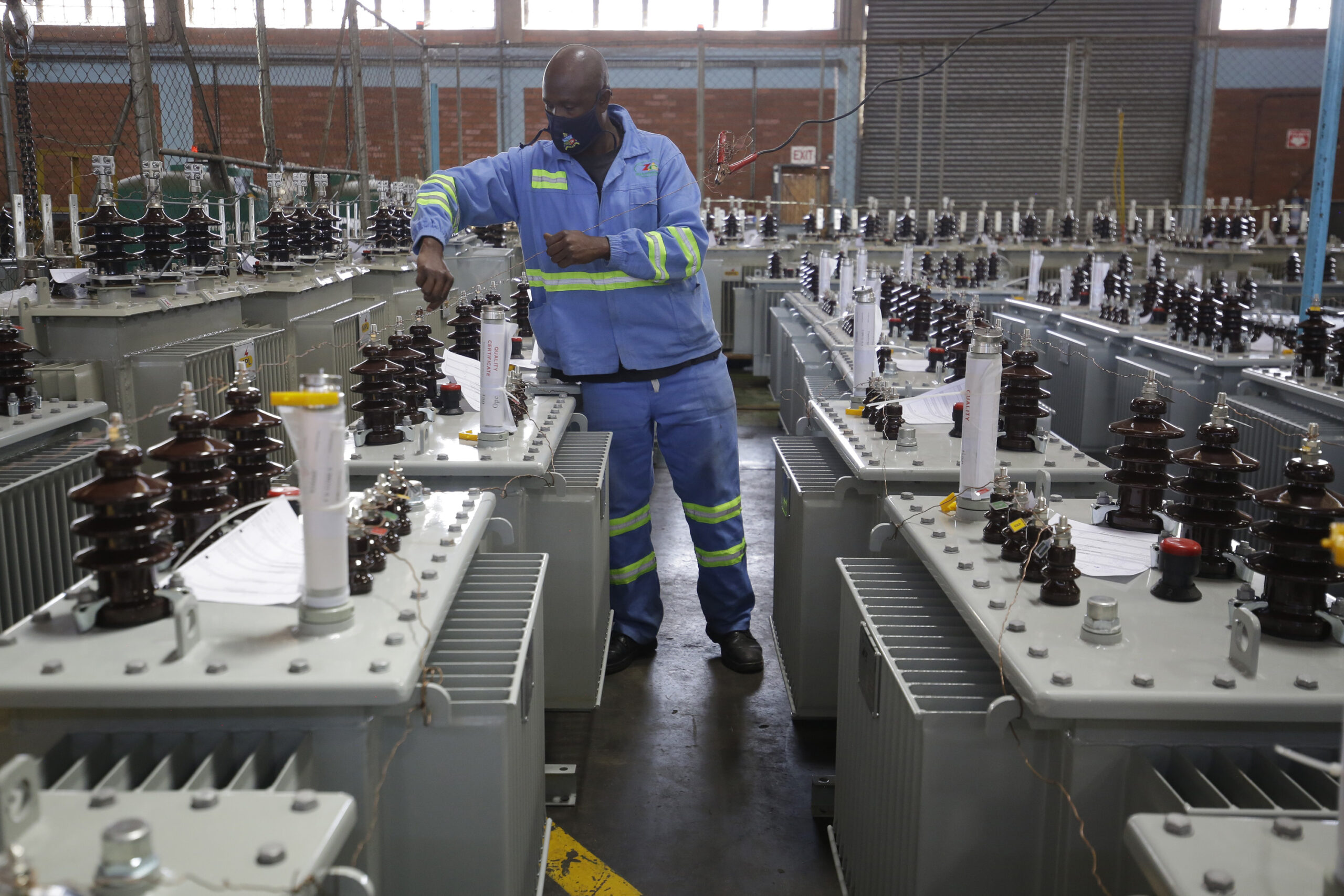AN electricity transformer test bay at Zesa Enterprises (ZENT) worth US$2 million has been lying idle since it was acquired in the late 1990s by Zesa Holdings amid fears it may have outlived its lifespan.
LIZWE SEBATHA
The equipment was bought from Germany before ZENT, a subsidiary of Zesa Holdings charged with producing and maintaining transformers, was even established.
The machine has been lying idle at Zent’s transformer-manufacturing plant in New Ardbennie, yet many Zimbabweans are living in darkness owing to a transformer shortage.
The equipment is used to test transformers before they are put to use. At the moment, ZENT has only one functioning bay.
Recently, ZENT said the country had a backlog of over 2 000 transformers which is due to the inability to produce at maximum capacity. Reports also said the firm required about US$7.2 million per year to produce between 250 and 300 transformers every month.
But it has emerged that the critical machine is gathering dust at the ZENT warehouse, with the company’s officials saying they need foreign currency to fly engineers from Germany to help them bring it to life.
“We have two test bays which test transformers of different sizes. The other one is not working because its commissioning is not yet complete. To commission it there is a need for foreign currency. Because installers of that test bay are from Germany, we need to hire and pay them in foreign currency. We also need to import spares,” said ZENT acting managing director Burusa Mandipezano.
ZENT operations director Philemon Dhafana added: “Its full commissioning requires up to US$200 000. What is not functional is the instrumentation and the software which is failing to boot because it has now become obsolete due to time and aging.”
Zimbabwe Coalition for Debt and Development (ZimCodd) programmes manager John Maketo said it was disturbing that US$2 million was spent on the importation of a machine which is gathering dust.
“There must be an investigation into this procurement because it boggles the mind why the whole entity procured the bay before undergoing due diligence in terms of the needs of such utility after procurement. It’s not just about buying but you want to consider capacity utilisation,” Maketo said.
“It’s very worrisome that our state enterprises continue to operate in a manner that is non-profitable which is not accruing any revenue back to the national fiscus.”
With many citizens living in darkness owing to transformer shortages, Zimbabweans are reeling under power outages as the power utility is failing to meet demand.
The country requires approximately 2 000 megawatts to plug the electricity outages, but ageing equipment at existing power plants is resulting in the country generating just above 1 000MW.
The government targets to ease the electricity outages by 2023, if ongoing projects to increase output are undertaken and completed.
But a number of planned electricity generation projects, including by independent power producers (IPP), are failing to take off or have been abandoned. One such project is the US$183 million Gwanda Solar Project awarded to controversial businessman Wicknell Chivayo.
The Gwanda solar project has been the subject of court battles after Intratrek Zimbabwe failed to deliver within agreed timelines. The contract was signed in 2015.
In September, 2020, Zesa abandoned its Mutare peaking power station project which was supposed to be completed in 2022. Zesa said it abandoned the project, which was envisaged to contribute as much as 120 megawatts to the national grid because using diesel to generate electricity was costly.
The scandal-ridden 100MW Dema diesel power plant built in 2016 by Sakunda Holdings has also been abandoned.









